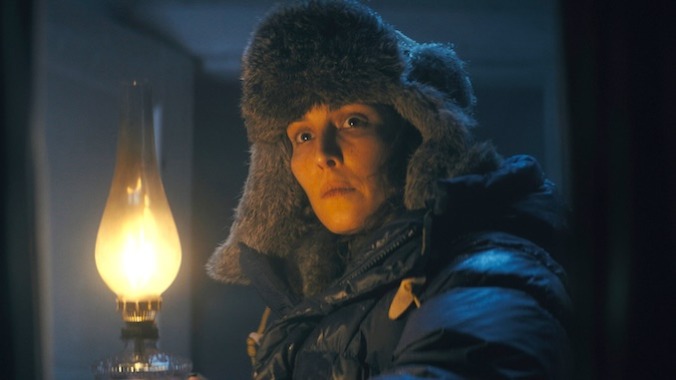ICYMI: Constellation Is the Alt-Universe, Sci-Fi Family Thriller You Didn’t Know You Needed
Photo Courtesy of Apple TV+
Editor’s Note: Welcome to ICYMI! With so much TV constantly premiering, we’re highlighting some of the best shows you may have missed in the deluge of content from throughout the year. Join the Paste writers as we celebrate our underrated faves, the blink-and-you-missed-it series, and the perfect binges you need to make sure you see.

What if you went to space, but returned to a world that wasn’t quite right when you finally made it back to Earth?
That’s the catalyst at the heart of the new Apple TV+ series Constellation, which just wrapped its first season and turned its slow, mysterious build into one of the biggest surprises—and brain-busting finales—of the year.
The streamer is cranking out science fiction originals at a rapid clip these days, focused on everything from alien invasions to alt-histories of space exploration, but the latest delves into a trope and subgenre we don’t often get to see explored at such depth and length across a full series: alternate universes.
But Constellation does more than just play with the concept, it drops you into a family torn apart and brought back together by two realities that look similar on the surface, but are broken in a few distinct ways. The show centers on Naomi Rapace’s astronaut Jo Ericsson, who is caught in a disaster on the International Space Station (ISS) when a mysterious object collides with said station and causes a catastrophic failure. Miraculously, Jo makes it home. …Or does she?
Constellation begs the question of what actually happens when humans leave our world behind for the stars, and is a reminder of just how dangerous and mysterious space remains all these years later. It’s a concept that made Alien so chilling almost 45 years ago, even more so than the (actual) alien at times. Space exists beyond our world, and we’re still figuring out exactly how it changes us when we go there and venture to come back.
Jo returns from space to find a husband who thinks she’d been having an affair with a co-worker before she left, despite the fact that she has no idea why he’s suspicious. She returns to a daughter who doesn’t use her normal “pet” nickname, and doesn’t speak Swedish, despite the fact they were chatting in Swedish via FaceTime before the ISS accident occurred. And their family car, did it used to be red, or was it always blue?
-

-

-

-

-

-

-

-

-

-

-

-

-

-

-

-

-

-

-

-

-

-

-

-

-

-

-

-

-

-

-

-

-

-

-

-

-

-

-

-








































